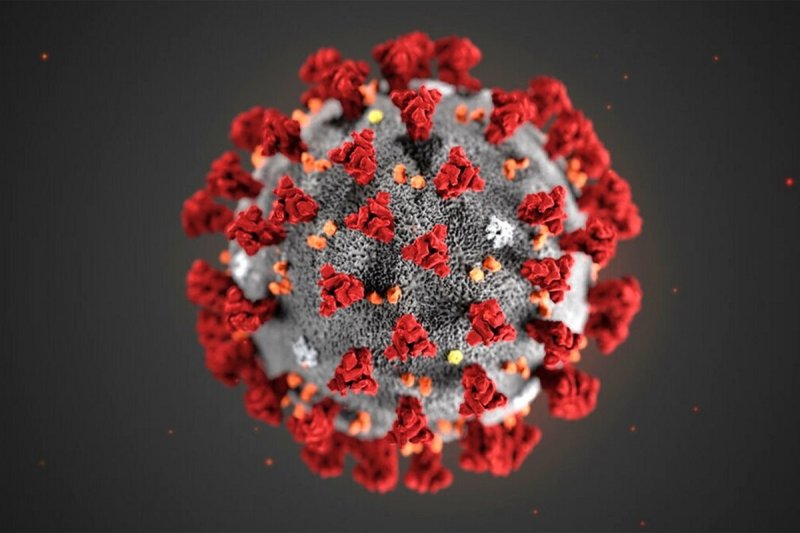What Makes A Disease Contagious – Infectious diseases are diseases caused by harmful agents (pathogens) that enter your body. The most common causes are viruses, bacteria, fungi and parasites. Infectious diseases are usually spread from person to person, contaminated food or water, and insect bites. Some infections are minor and some are more serious.
Infectious diseases are diseases caused by harmful organisms (pathogens) that enter your body from outside. Pathogens that cause infectious diseases include viruses, bacteria, fungi, parasites, and rarely, prions. You can get infectious diseases from others, insect bites, and contaminated food, water, or soil.
What Makes A Disease Contagious

Cleveland Clinic is a not-for-profit academic medical center. Advertising on our site helps support our mission. We do not endorse any non-Cleveland Clinic products or services. principle
Cutting Covid 19 Infectious Period Could Prev
Infectious diseases are caused by harmful organisms that enter your body from outside, such as viruses and bacteria. Non-communicable diseases are not caused by external organisms, but by genetics, anatomical differences, aging and the environment in which you live. You cannot get non-communicable diseases from other people through insect bites or from your food.
Examples of infectious diseases are influenza, measles, HIV, strep throat, covid-19 and salmonella. Cancer, diabetes, heart failure, and Alzheimer’s disease are all examples of noncommunicable diseases.
Infectious diseases can be viral, bacterial, parasitic or fungal infections. There is also a rare group of infectious diseases known as transmissible spongiform encephalopathies (TSEs).
Infectious diseases are very common worldwide, but some are more common than others. For example, each year in the United States, 1 in 5 people are infected with the influenza virus, but fewer than 300 are diagnosed with prion diseases.
Which Contagious Diseases Are The Deadliest?
Anyone can get an infection. You may be at higher risk if your immune system is weakened or if you travel to areas where certain diseases are more prevalent.
Symptoms of infectious diseases depend on the type of disease. Fungal infections usually cause local symptoms such as rash and itching. Viral and bacterial infections can cause symptoms in many areas of your body:
It is important to see a doctor if you have any chronic (ongoing) symptoms or symptoms that worsen over time.
Infectious diseases are caused by various agents that invade your body from outside. These include:
Contagious Equine Metritis
You may develop symptoms when your cells are damaged or destroyed by an invading organism and your immune system responds to the infection.
There are several ways that infectious diseases can spread, depending on the type of infection. Fortunately, in most cases, there are simple ways to prevent infection.
Your mouth, nose, and cuts on your skin are common places for germs to enter your body. Diseases can spread:
Your health care provider will usually diagnose infectious diseases using one or more laboratory tests. Your provider may look for signs of the disease:
Infectious Disease In An Era Of Global Change
Some test results, such as a nasal swab, come back quickly, but other results may take longer. For example, sometimes you need to grow (cultured) bacteria from a sample in a lab before you can get your test result.
Treatment depends on what is causing the infection. Sometimes your healthcare provider will recommend monitoring your symptoms rather than taking medication.
Antibiotic resistance is when bacteria develop mutations that make it harder for our drugs to kill them. This happens when antibiotics are overused, meaning for minor infections that your body can fight off on its own.
Antibiotic resistance makes certain bacterial infections more difficult to treat and can be life-threatening. Methicillin-resistant Staphylococcus aureus (MRSA) is an example of a bacterial infection that has become antibiotic-resistant.
Stomach Flu: Symptoms, Causes & Treatment
Healthcare providers are working to reduce antibiotic resistance. You can help — and protect yourself — by finishing your antibiotic medications as prescribed. This helps ensure that all bacteria are destroyed and cannot be replaced.
James Reason’s Swiss cheese model applied to infectious diseases. Even if protection isn’t perfect, vaccinations, hand washing, safe food handling, cleaning, and disinfecting—the more layers of protection you add (“cheese slices”)—reduce your risk of contracting and spreading infectious diseases.
There are many simple ways to reduce your risk of infection and even prevent some diseases altogether. While each of these can help reduce your risk of acquiring and spreading infectious diseases, there is often no single method that is 100% effective in preventing disease. That’s why it’s important to have several habits to reduce your risk.
You can think of it like sorting slices of Swiss cheese, as suggested by James Reason, Ph.D. Some pieces have holes, while other pieces provide protection. Getting recommended vaccinations and simple habits like safe food handling and washing your hands work together to provide layers of protection.
Is Pneumonia Contagious? How Long It Could Be?
Vaccines reduce your risk of getting an infectious disease by helping your immune system recognize and fight infections from harmful invaders. Although people sometimes get sick after being vaccinated, your symptoms are usually less severe than they would have been without the vaccine.
Usually given as a single shot or a series of shots (or, more commonly, as a nasal spray), vaccines are available for several common infectious diseases, including:
The CDC has updated recommendations for vaccines for children, adolescents, and adults. If you are traveling, make sure you have all the recommended vaccinations for your destination before you go.

In addition to vaccinations and safe food handling practices, a few everyday practices can reduce the risk of contracting or spreading an infectious disease.
Important Differences Between Communicable And Non Communicable Disease
Sometimes there may be more serious complications, especially with respiratory diseases. People with compromised immune systems are at risk for serious complications, but they can also occur in healthy people.
Some diseases, such as HIV and hepatitis B, cannot be cured, but medications can help prevent serious complications. Sexually transmitted infections can cause infertility or lead to cancer, so it’s important to take steps to protect yourself and others.
Prion diseases are very serious and cannot be cured. They are fortunately some of the rarest infectious diseases.
If you have any symptoms of an infection, especially if they are unusual or do not go away over time, let your healthcare provider know. If you have persistent infections, frequent follow-ups with your provider can help make sure your condition doesn’t get worse.
What To Know About Hand, Foot And Mouth Disease
Your provider should also know if you plan to travel abroad. You may need to be vaccinated against the most common infections in your destination.
Emerging infectious diseases are new or affect more people than ever before. Special research is devoted to these diseases. Some emerging infectious disease agents include Ebola, salmonella, hepatitis A, some coronaviruses, and West Nile virus.
Babies and children are more susceptible to infectious diseases because their immune systems are still developing. They cannot maintain good hygiene on their own like adults. Some of the most common infectious diseases in children include:

We live with viruses, bacteria, fungi and parasites every day. In fact, your body contains 10 times more bacteria than human cells – we couldn’t live without them!
Non Communicable Diseases
Some of the creatures we encounter are harmful. Fortunately, there are many simple things you can do to keep yourself healthy.
It is also important to remember that there may be people around you who cannot easily fight off the infection. Washing your hands, covering your mouth when you cough or sneeze, and other simple habits can help protect others from getting serious illness. A small habit on your part can save someone else’s life. Bacterial infections Diseases that affect your skin, lungs, brain, blood, and other parts of your body You get them from single-celled organisms that multiply or release toxins in your body. Common bacterial infections include UTIs, food poisoning, STIs, and some skin, sinus, and ear infections. They are often treated with antibiotics.
Bacterial infections can spread between people, airborne particles, insect bites, or through contaminated food, water, or surfaces.
Bacterial infections are diseases or conditions caused by bacterial growth or toxins (toxins). You can get sick from harmful bacteria on your skin, gut (GI tract), lungs, heart, brain, blood, or anywhere else in your body.
Non Communicable Diseases
Infection can be caused by harmful bacteria from the environment, an infected person or animal, an insect bite, or something contaminated (such as food, water, or a surface). Bacteria that are usually harmless but enter your body where they shouldn’t be can also cause infection.
Bacteria are single-celled organisms that can reproduce rapidly. Millions of bacteria live all around us – in soil or water and on surfaces in our homes and workplaces. There are even millions of bacteria living on your skin and inside your body.
Most bacteria are not harmful, and many are beneficial. They help digest food and destroy other harmful bacteria that try to invade your body. But even helpful ones can hurt you if they grow up where they don’t want to.

Cleveland Clinic is a not-for-profit academic medical center. Advertising on our site helps support our mission. We do
Am I Too Sick To Work? How Long Is The Cold Or Flu Contagious?
What makes crohn's disease worse, what disease makes you sleep all the time, what disease makes you cough up blood, what makes a disease, what makes shingles contagious, what makes a yawn contagious, what disease makes you shake, what disease makes you fall asleep randomly, what makes pink eye contagious, what is a contagious disease, disease that makes you sleep a lot, is malaria a contagious disease







